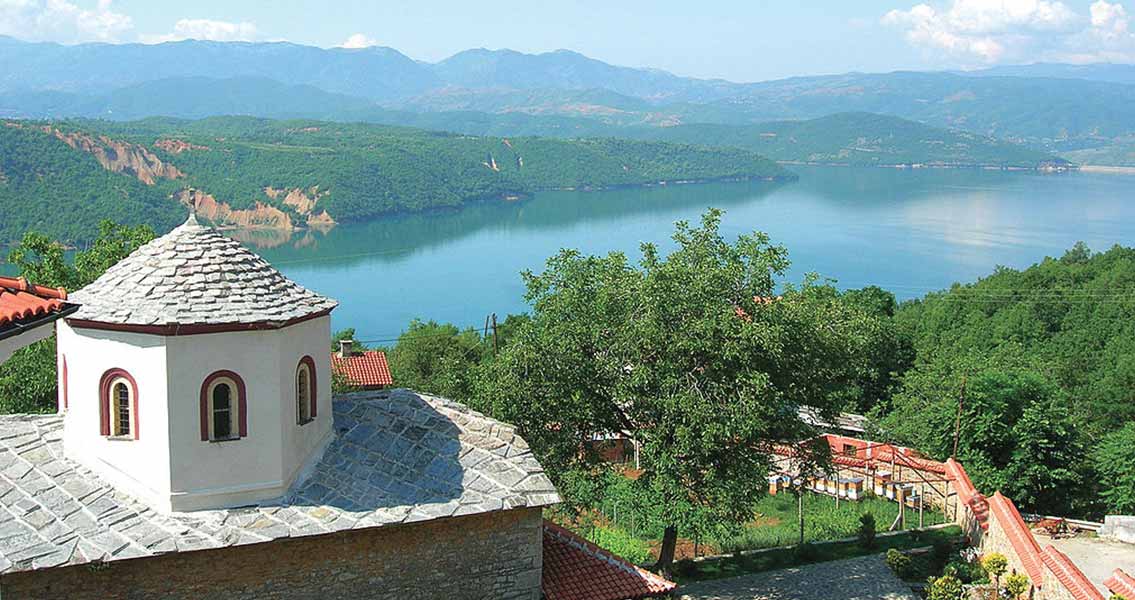<![CDATA[On 25th November 1912 delegations from the Ottoman Empire and Bulgaria met in Bahçeköy, North West Turkey, to discuss the possibility of peace in the First Balkan War. Fighting in the conflict started to slow down, ultimately leading to the agreement of an armistice on December 3rd. Although hostilities briefly resumed as a result of a coup in Turkey in January 1913, the outcome of the war had already been clearly established. The Balkan Wars of the early twentieth century were key events in the decline of the Ottoman Empire, and consequently, the start of the First World War. The delicate balance of power that had maintained stability in Europe since the Napoleonic Wars was becoming increasingly unbalanced. Sparks of nationalism in the region laid the foundations for the Balkan states to eventually break free from the shadow of empire, initially from the Ottomans, but ultimately from Austria-Hungary and Russia as well. Formed in the spring of 1912, the Balkan League was comprised of Bulgaria, Greece, Montenegro and Serbia. The league was created from Russian encouragement and aimed to liberate the region that is now Macedonia from Turkish control. In 1908 a nationalist organisation called the Young Turks had started an uprising in Turkish Macedonia that destabilised the Sultan's empire in Europe. Russia and Austria-Hungary sensed a weakness, and Austria-Hungary quickly moved to annex Bosnia-Herzegovina - a move that intimidated both Russia and Serbia. Russia pushed the Balkan League to strike at Turkey and completely take its remaining territory in Europe. Russia's interest here was to further damage the Ottoman Empire, one of its major rivals for influence in Europe and Asia. Since the Crimean War in the 1860s, Russian foreign policy had been shaped with one eye on taking advantage of 'the sick man of Europe'. Montenegro declared war on Turkey on October 8th, 1912, with the other nations in the League joining in ten days later. Historically these nations had a history of dispute and conflict, but they seemed united at the opportunity of striking at a beleaguered Turkey, who was already involved in a war with Italy over territory in Libya. The League combined to field an army of over 750,000 men, although most observers at the time still viewed their chances of success against the Ottoman forces as remote. Turkey however, suffered a quick succession of swift and embarrassing defeats. Bulgarian forces managed to advance right to the outskirts of Constantinople. Meanwhile, the Serbian and Montenegrin armies achieved great successes in Macedonia, swiftly capturing the capital Skopje, while the Greeks quickly captured Salonika (what is now Thessaloniki). Turkey's humiliation in the conflict was comprehensive, and the nature of it sent shockwaves throughout Europe. The official Peace Treaty, signed in London in May 1913, saw Turkey surrender almost all of its remaining territory in Europe. Albania was granted independence, something which the other European powers had insisted upon, while the region of Macedonia was divided up between the nations of the Balkan League. The consequences of the First Balkan War were huge. Firstly, it directly caused the Second Balkan War, when powers in the Balkan League started to dispute the division of land in Macedonia. More importantly, it played a huge role in shaping European history. By its end, Turkey was a weakened power, its only remaining European territory Constantinople and the surrounding area, while Albania had become an independent country for the first time in modern history. More importantly, a new balance of power existed in Europe. Turkey's decline had created a massive power vacuum that the other European Empires vied to fill. What's more, the success of the Balkan League showed that smaller nations could challenge the influence of those old empires. Historians often consider the Balkan Wars key events in the origin of the First World War, but more than that, the consequences of them continue to shape Europe to this day.]]>
The Balkan Wars and the End of The Ottoman Empire
